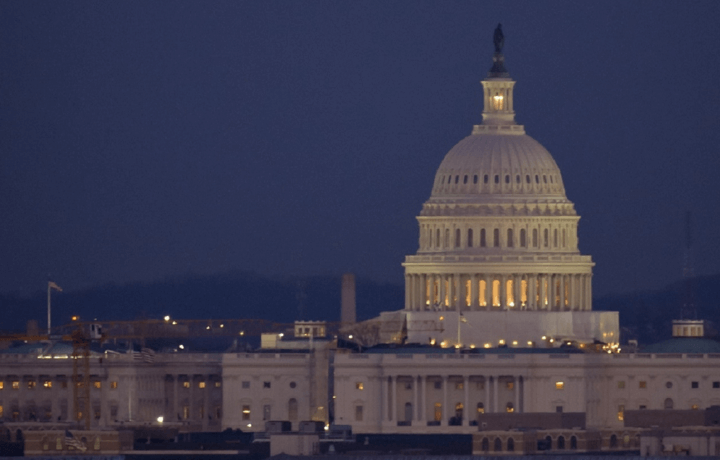Thinking about running for office? There’s no better way to “put your money where your mouth is” than by standing on your principles and throwing your hat in the ring.
President Theodore Roosevelt, a Medal of Honor recipient for his actions in Cuba during the Spanish-American War, put it best. “It is not the critic who counts; not the man who points out how the strong man stumbles, or where the doer of deeds could have done them better. The credit belongs to the man who is actually in the arena, whose face is marred by dust and sweat and blood; who strives valiantly; who errs, and comes short again and again, because there is no effort without error and shortcoming.”
Military service has always been a good starting point for entry into politics in America. Americans traditionally love war heroes, however broad the definition of that term might be. From George Washington, who was not only the commander of the Continental Army but a veteran of the French-Indian War, to George W. Bush, a Texas Air National Guard pilot, 32 of the 44 men who have held the presidency served in uniform at some point. Twelve of them were general officers.
One of the high-water marks for veteran political activity was the election of 1946, the first held after the end of the Second World War. Seventy war veterans were elected to Congress that year, including three future presidents: John F. Kennedy, Richard M. Nixon, and Gerald R. Ford.
There are currently 96 veterans of all stripes serving in Congress—77 in the House and 19 in the Senate—but only 19 are freshmen. I believe we need to raise that number.
If you’re a veteran who wants to make a difference in politics, whether at the local, state, or national level, there are several programs where you can put your Post-9/11 G.I Bill benefits to use. These programs give you the technical knowledge necessary to get a head start on your potential opponents, whoever they may be.
Syracuse University Veterans in Politics Program
Syracuse University is the newest entry in the field. Banking giant JP Morgan Chase & Co. (where retired Army chief of staff Gen. Raymond Odierno is a senior advisor) provided a grant to Syracuse’s Maxwell School of Citizenship and Public Affairs to begin the program, which is enrolling students for the fall semester.
Mike Haynie, executive director of Syracuse’s Institute for Veterans and Military Families and its vice chancellor for strategic initiatives and innovation told Military Times, “We hope to in a very practical way create the opportunity to put the veterans who participate in the program on a path to enacting their aspiration for office.”
Military Times has ranked Syracuse as the number-one private school in the nation for military veterans. It participates in the Yellow Ribbon Program, which covers the difference between Post-9/11 G.I. Bill benefits and the cost of tuition, and has a robust veterans services office.
To request more information on the Veterans in Politics Program, visit the program’s website here.
University of San Francisco Masters in Public Leadership
In conjunction with the Veterans Campaign, a non-partisan organization dedicated to preparing veterans to hold political office, the University of San Francisco runs what it calls a “hybrid” program of online courses and weekend seminars. The program leads to a master of arts degree in public leadership. It is designed to prepare all students, but especially veterans, to hold political office “as well as for careers in legislative affairs, campaign management, advocacy and civic leadership.”
The seminars are available in both San Francisco and in the Washington, D.C. area. Like many professional graduate programs, the faculty come more from professional life than academia, a must when discussing the nuts and bolts of getting elected. Most prominently among the adjunct faculty is Patrick Murphy, who was the first Iraq vet elected to Congress. He later served as the under secretary and acting secretary of the Army in the Obama administration.
Last year, Craigslist founder Craig Newmark donated $200,000 to the program to bolster the money available for Yellow Ribbon scholarships.
George Washington University Graduate School of Political Management
No discussion of political graduate programs would be complete without mentioning my own alma mater, The George Washington University. The Graduate School of Political Management was the first of its kind in the country. It began in New York in 1987, branching out to Washington in 1991. It formally became part of GWU in 1995.
If you want to learn about politics from the people who actually practice it, and study it alongside people who are currently working in it, then GSPM is for you.
The program offers master of professional studies degrees in three areas: political management, legislative affairs, and strategic public relations. Political management would be the best choice for would-be candidates, while legislative affairs is geared towards those looking to work on Capitol Hill or as a lobbyist. Strategic public relations (the program I attended), prepares students to advise senior political and corporate leaders on their engagements with the public.
However, there is room in the course of study for several electives, allowing students to add to their program’s core with classes from the other two programs.
While not specifically geared towards veterans, GWU is a participant in the Yellow Ribbon Program, and has an outstanding veterans services department. Speaking from experience, once I had completed my paperwork for the post-9/11 G.I. Bill and enrolled in the school, I did not have to worry about dealing with my benefits again. I was able to complete my coursework without any billing distractions.
Politics can be a richly rewarding career, regardless of which side of the fence or which side of the television camera you prefer to be. Your status as a veteran gets you a seat at the table, but from then on, it’s up to you to articulate why you deserve to be elected. These programs, and others, can help get you there.



